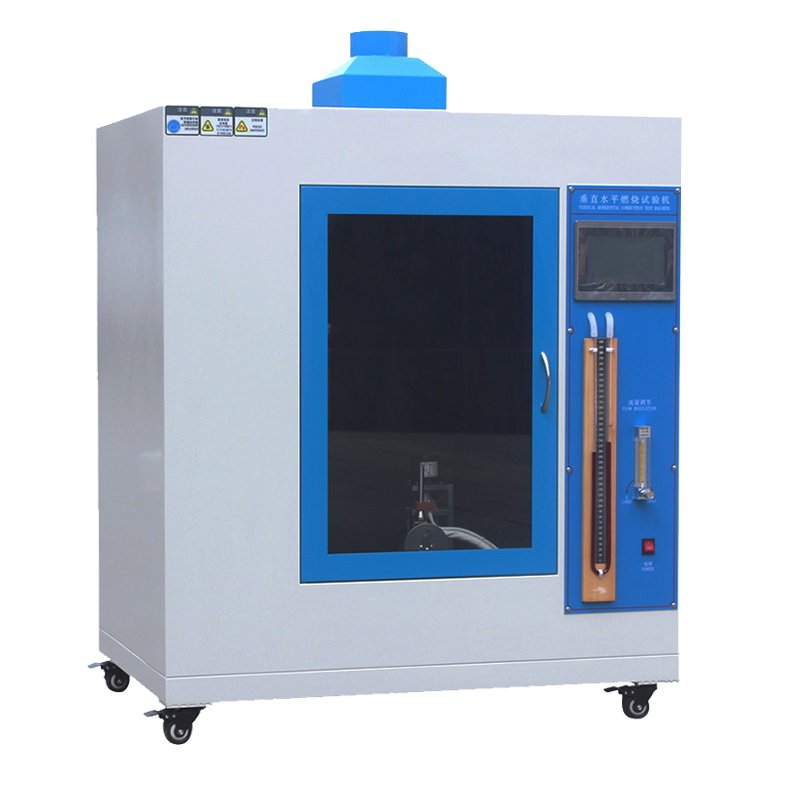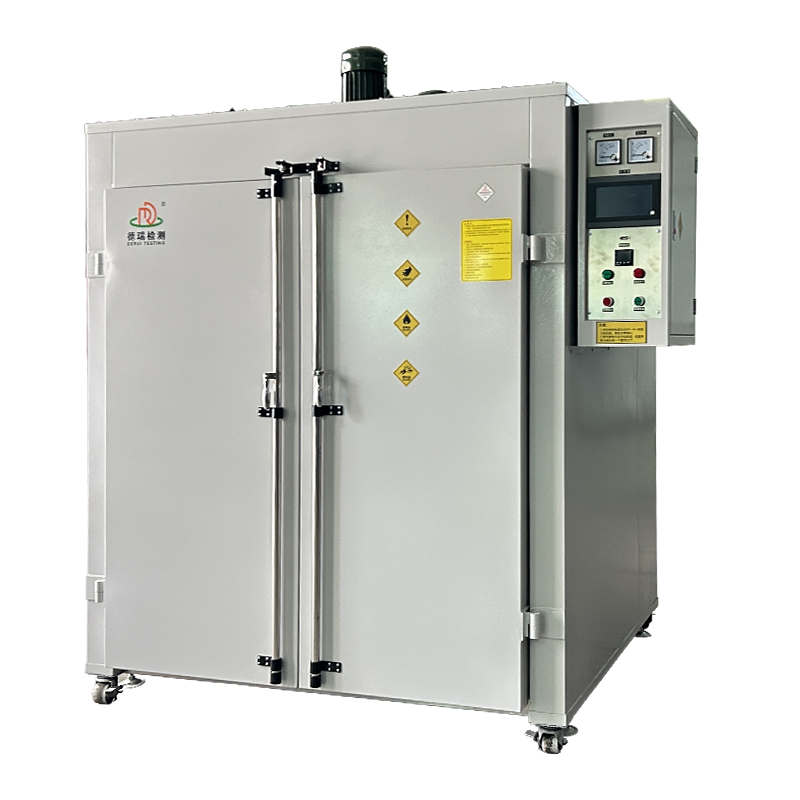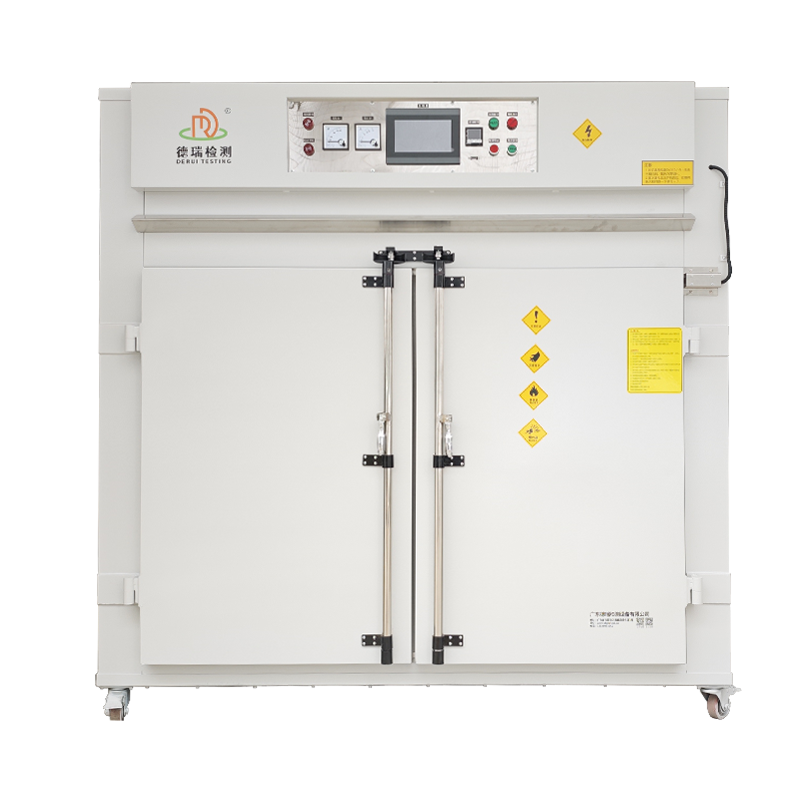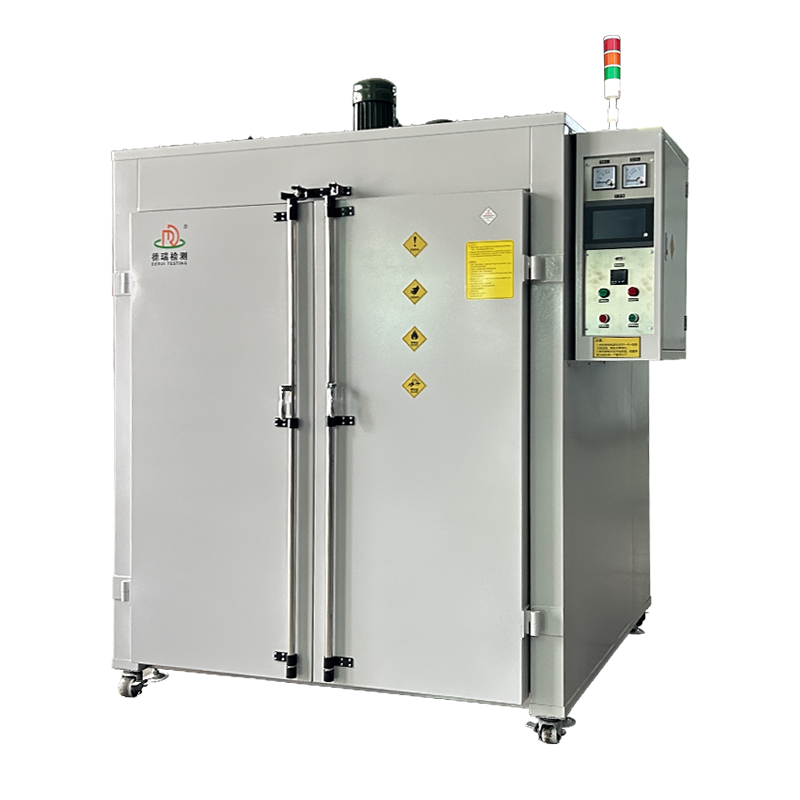Welcome!



Building Material Vertical Combustion Tester, Ensuring Fire Safety
Product Description
STANDARD FEATURES
| Burning Chamber Capacity | ≥0.75m³ with glass observation door |
| Burning Angle | 20 。, 45 。, 90 。 (ie 0 。) adjustable |
| Flame Time | 0 ~ 99 minutes 99 seconds can be set |
| After Flame Time | 0 ~ 99 minutes 99 seconds can be set |
| After Glow Time | 0 ~ 99 minutes 99 seconds can be set |
| Burner Dimensions | The inner diameter of the nozzle is Ø9.5±0.3mm, the effective length of thenozzle is 100±10mm, and there is an air adjustment hole |
| Combustion Gas | LPG gas (Customize) |
| Flame Height | Adjustable from 20mm to 175mm as standard |
| Features | It is also equipped with lighting device, air extraction device, gas flow regulatingvalve, gas pressure gauge, gas pressure regulating valve, gas flow meter, gasU-shaped pressure gauge and sample fixture |
| Power | AC 220v 50HZ |



Building Material Vertical Combustion Tester, Ensuring Fire Safety
Introduction
In the construction industry, ensuring the fire safety of building materials is of paramount importance. The Building Material Vertical Combustion Tester is a specialized device designed to evaluate the combustion performance of various building materials by simulating real-world combustion conditions. This tester is essential for manufacturers, suppliers, and quality control professionals to ensure that materials meet stringent fire safety standards.
Features
PLC + Touch Screen Control: The device is equipped with a PLC and touch screen interface for intuitive operation and precise control of test parameters.
Automatic Ignition & Flame Adjustment: The Bunsen burner automatically ignites, and the flame height can be set arbitrarily to simulate different combustion scenarios.
High-Precision Timing: T1/T2/T3 recording time up to 9999 seconds with a minimum resolution of 0.1 seconds ensures accurate measurement of combustion characteristics.
Flame Application Time: Preset flame application time (0.1s-999.9s) with automatic timing and Bunsen burner return after reaching the set burning time.
Observation Window: The front side of the sample holder faces the equipment observation window, facilitating easy monitoring of the sample's combustion process.
Safety Features: Includes safety measures such as leakage protection and explosion-proof window protection to ensure the safety of personnel and equipment.
Technical Parameters
Inter Size: 850mm × 600mm × 1000mm
Vent (above): Φ135mm × 85mm
Burning angle: 45°, 90° (0°) Adjustable
Flame time: 5s, 10s, 30s, 60s optional
Combustion timer: Timer (accurate to 0.1s)
Burner: Length 100 ±10 mm, Inner diameter 9.5 ±0.3 mm, ASTM D 5025
Outline size: 1200mm × 620mm × 1300mm
Weight: 90kg
Power supply: 220V, 50Hz
Application Fields
Building Materials: Evaluates materials such as insulation foams, wall panels, ceiling tiles, and flooring materials.
Construction Research & Development: Used in the development of new building materials to ensure they meet fire safety standards.
Quality Control: Essential for quality inspection departments to verify material compliance before installation in buildings.
Standards Compliance
GB 8624:2012: Chinese national standard for classification and testing of building materials' flammability.
GB/T 8333:2008: Chinese national standard for test methods of rigid cellular plastics' combustion performance.
ISO 3795: International standard for determining the burning behavior of materials.
ASTM E84: Measures the surface burning characteristics of building materials, including flame spread and smoke density.
ASTM E162: Evaluates the surface flammability of materials using a radiant heat energy source.
ASTM E662: Measures the specific optical density of smoke generated by solid materials.
Tailored Solutions
Customizable Testing Parameters: The device can be calibrated to meet specific industry standards and requirements, allowing for precise simulation of combustion conditions relevant to different materials.
Adaptable Sample Holders: With various sample holder configurations, the tester can accommodate different material types and dimensions, ensuring accurate and representative testing results.
Integration with Data Management Systems: For industries requiring detailed record-keeping and reporting, the tester can be integrated with data management software to automate data collection, analysis, and reporting processes.
Conclusion
The Building Material Vertical Combustion Tester is a vital tool for ensuring the fire safety of building materials across various applications. By simulating real-world combustion conditions and meeting industry standards, it helps manufacturers produce materials that meet the highest safety requirements. This device combines precision, safety, and versatility, making it an essential investment for the construction industry.
How to Operate the Building Material Vertical Combustion Tester
Pre-Operation Preparation
Check Equipment: Ensure all components are intact and properly connected.
Connect Gas Supply: Connect the gas supply and check for leaks.
Power On: Turn on the power and wait for the system to initialize.
Prepare Samples: Securely mount the samples on the holder and position them correctly.
Flame Adjustment
Adjust Burner Height: Set the burner height based on the required flame energy.
Adjust Ignition Needle: Position the ignition needle correctly relative to the burner.
Set Flame Size: Adjust the flame size using the needle valve or flow meter.
Starting the Test
Preheat: Preheat the burner for 5 minutes.
Position Sample: Place the sample in the combustion chamber.
Start Test: Initiate the test in automatic or manual mode.
Monitor and Record: Observe the combustion process and record data such as burning time and flame spread.
Post-Test Procedures
Turn Off Flame: Shut down the flame after the test.
Ventilate: Use the exhaust system to clear combustion gases.
Clean Up: Remove residues and prepare for the next test.
Shut Down: Turn off the gas supply and power.
Safety and Maintenance
Safety Gear: Wear protective equipment and avoid open flames in the lab.
Regular Maintenance: Clean and calibrate the device regularly to ensure accuracy and longevity.
By following these steps, you can effectively use the Building Material Vertical Combustion Tester to ensure the fire safety of your materials.
Recommended Products
Recently Viewed
 Building Material Vertical Combustion Tester, Ensuring Fire Safety
Building Material Vertical Combustion Tester, Ensuring Fire Safety Vertical Combustion Tester, Features Automatic Data Recording and Analysis
Vertical Combustion Tester, Features Automatic Data Recording and Analysis Desktop 4-Channel Optical Power Meter WG3024 Stable Performance for Transceiver Production Test
Desktop 4-Channel Optical Power Meter WG3024 Stable Performance for Transceiver Production Test Industrial Grade WG3028 High Speed 8-Channel OPM InGaAs Detector Optional
Industrial Grade WG3028 High Speed 8-Channel OPM InGaAs Detector Optional Vertical Combustion Tester, Providing Reliable Testing Results for Research and Development
Vertical Combustion Tester, Providing Reliable Testing Results for Research and Development
Contact Us
Guangdong Derui Testing Equipment Co., Ltd.



